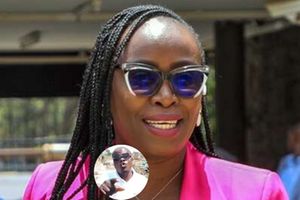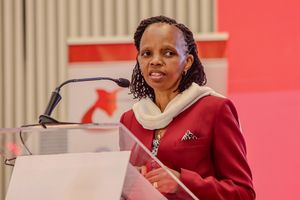Why women struggle to speak up despite having seats at the table

Despite the progress in gender equity, the pace of women sharing their own stories remains painfully slow.
What you need to know:
- Imagine finally earning a seat at the table, only to feel paralysed by the weight of history, unable to speak your mind.
- This scenario is all too common for many women who continue to grapple with the legacy of patriarchy.
As a child, speaking up was second nature to me, thanks to my confident mother, who encouraged assertiveness.
I was fearless in expressing myself in public and private spaces. Sadly, with age and adolescence came severe self-consciousness. I outgrew my confidence.
Perhaps it was the loss of my mother at 16, or maybe I had outgrown my childish innocence and was noticing the expectations society had for women and girls – to be polite, submissive, and excessively, ridiculously accommodating. I found myself conforming to these expectations to fit in.
It was not until my undergraduate years when I became more exposed to life that I began to reclaim my confidence and voice, though it was a slow and painful process.
Even as I advanced in my career years later and became a manager at only 26, self-doubt and fear still haunted me during meetings and presentations.
Pep talks from my supervisor always preceded our meetings to encourage me to use my voice.
Imagine finally earning a seat at the table, only to feel paralysed by the weight of history, unable to speak your mind.
This scenario is all too common for many women who continue to grapple with the legacy of patriarchy.
I recall an incident in a newsroom where a colleague assumed I should take notes because “women are better at it.”
I challenged this assumption and retorted that there was nothing in a woman’s biology that predisposed us to note-taking abilities.
Also read: My GBV story: Four slum women speak out
However, this was a reminder of how women’s voices are often dismissed. It was no surprise to me when I read the recently launched report by the Aga Khan University Graduate School of Media and Communications titled The State of Women in the Media: Coverage and Framing of Women in East African Media.
It revealed that despite constituting a significant portion of the population, women are vastly underrepresented in opinion editorials.
In Kenya, for instance, a mere 16 per cent of such articles are authored by women, underscoring the entrenched biases that continue to shape our societal narratives.
This disparity reflects a broader pattern of marginalisation, where women’s voices are sidelined and their contributions overlooked.
One striking example of this phenomenon occurred when a senior-ranking female acquaintance working in the NGO sector attempted to engage with a patriarchal community on land-related issues.
Despite her expertise and authority, a man in the crowd dismissed her outright, questioning her credibility simply because of her gender.
His remark—“How can property talk to us about property?”—epitomises the entrenched sexism that women continue to face in both public and private spheres.
Undoing the effects of centuries of silencing women’s voices requires concerted efforts in dismantling patriarchal structures and challenging ingrained attitudes.
It is about recognising and valuing women’s perspectives. This is certainly worth aspiring to do as we celebrate International Women’s Day.
The writer comments on social and gender topics (@FaithOneya





